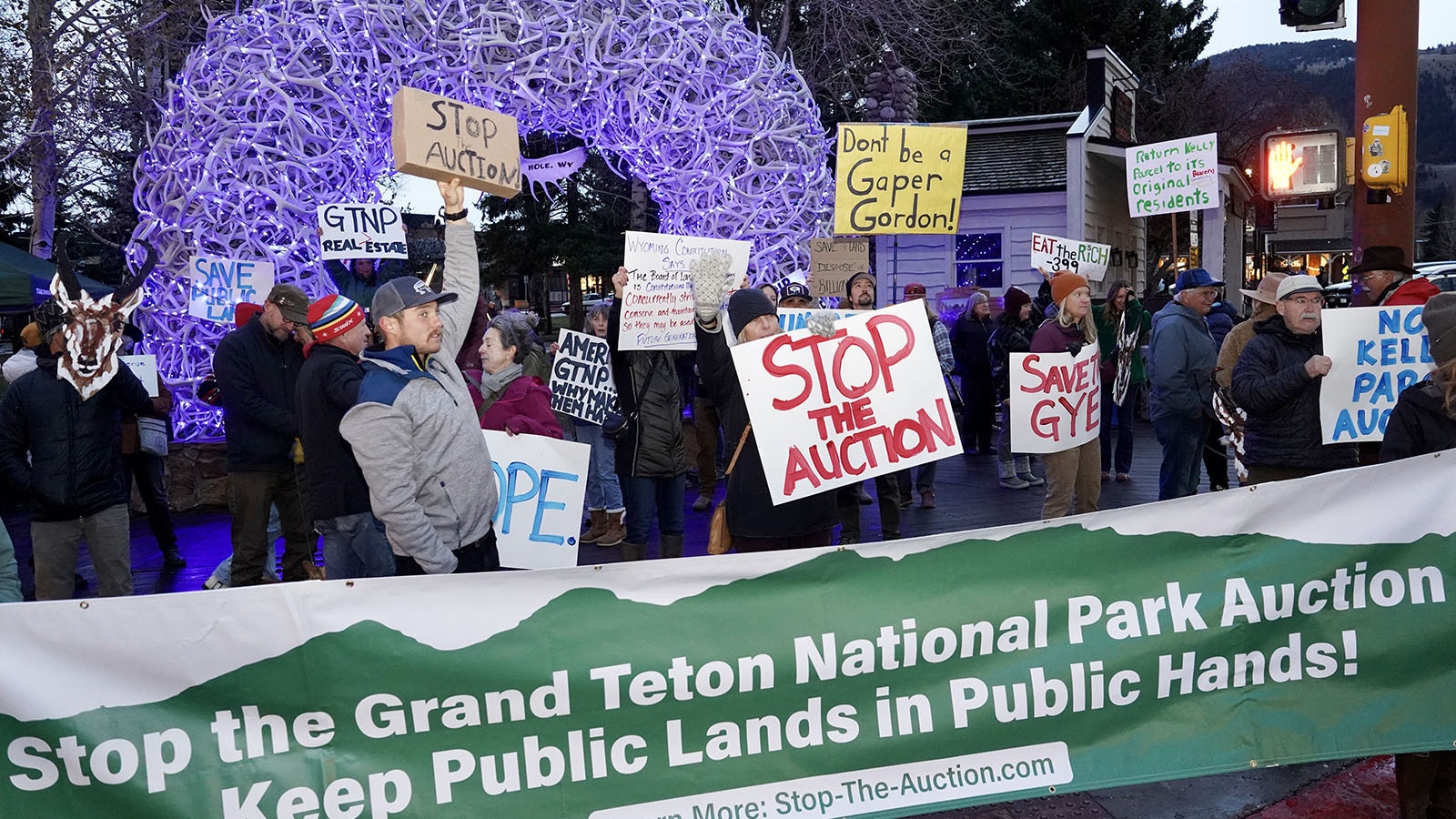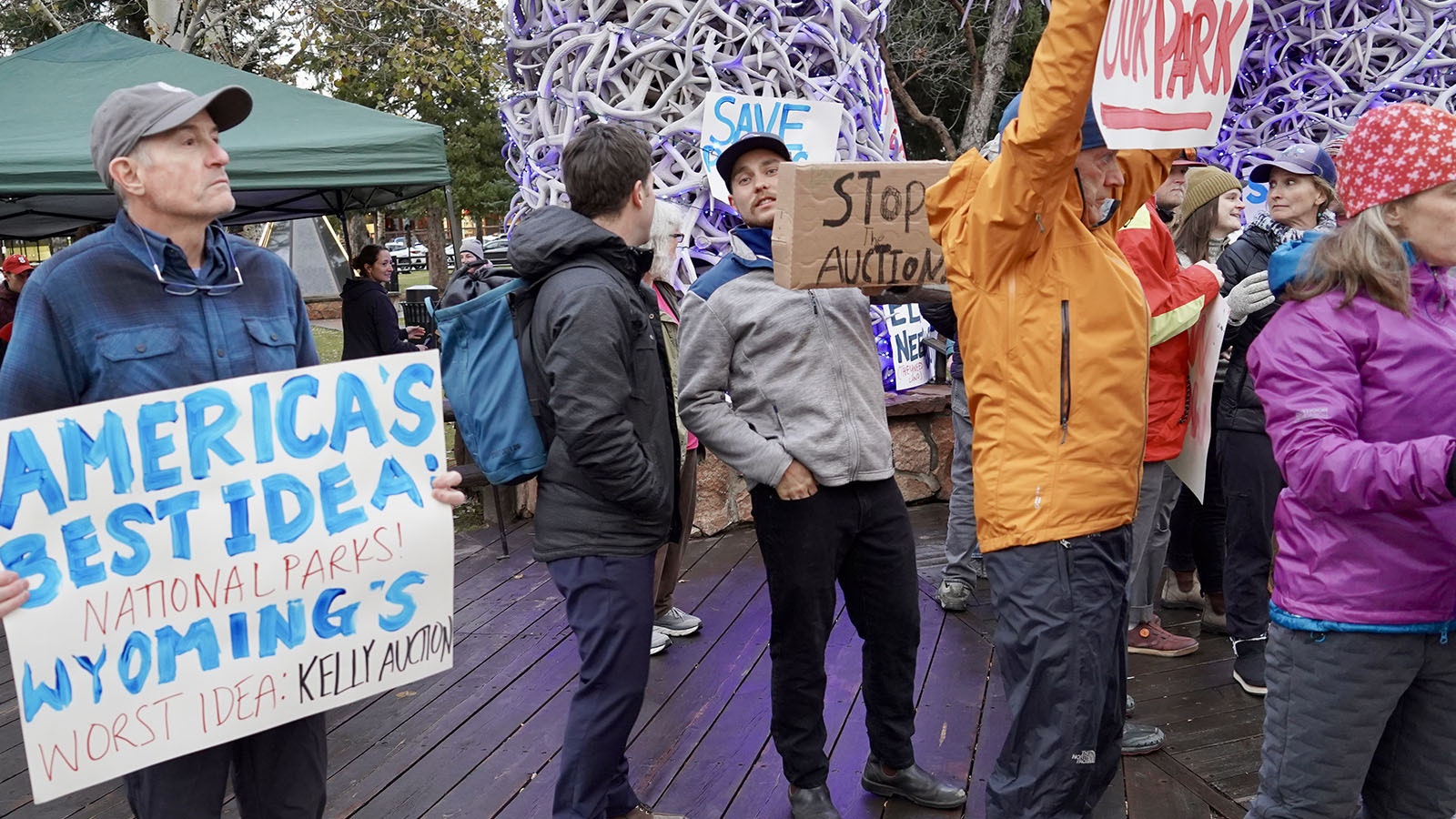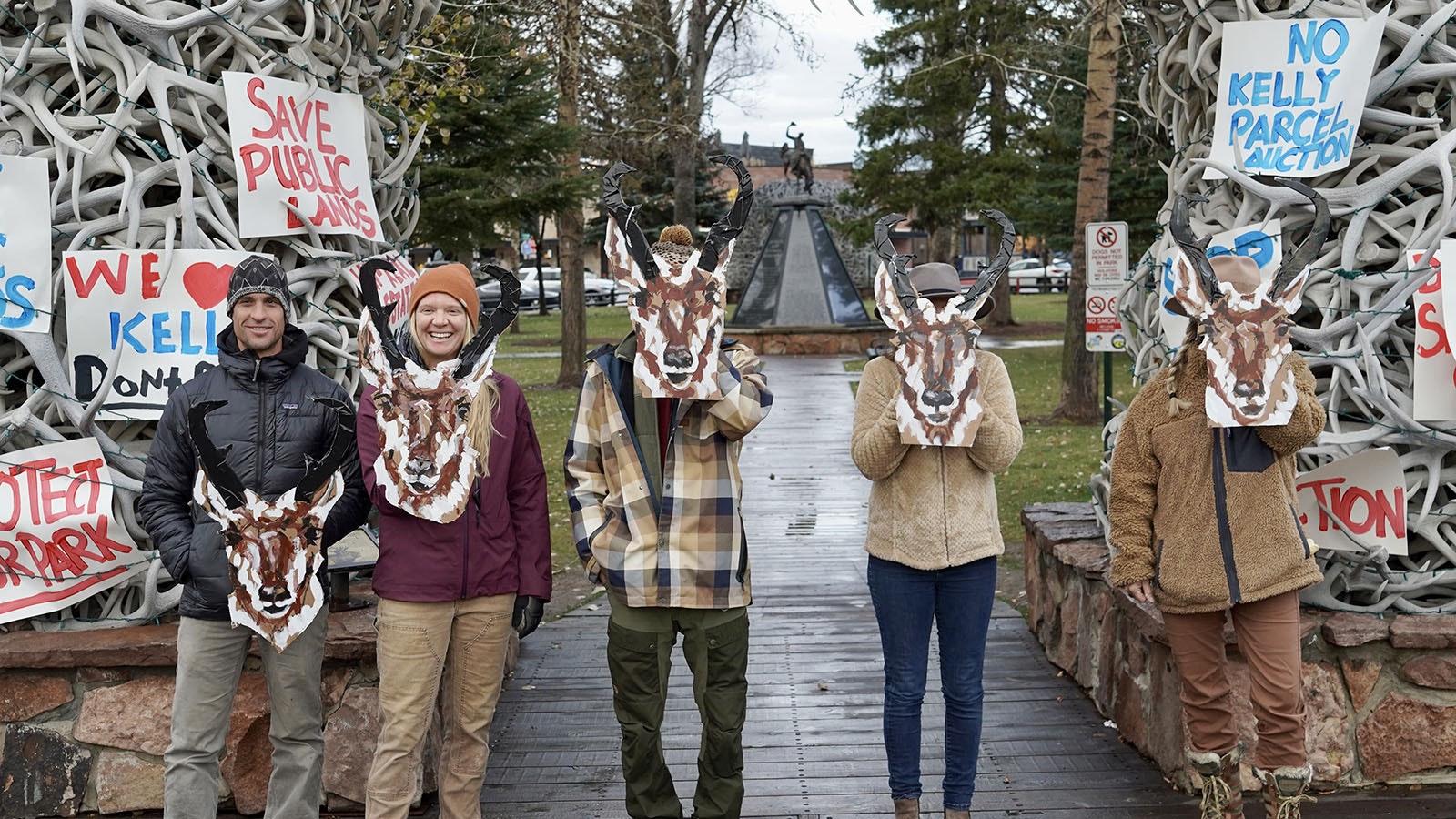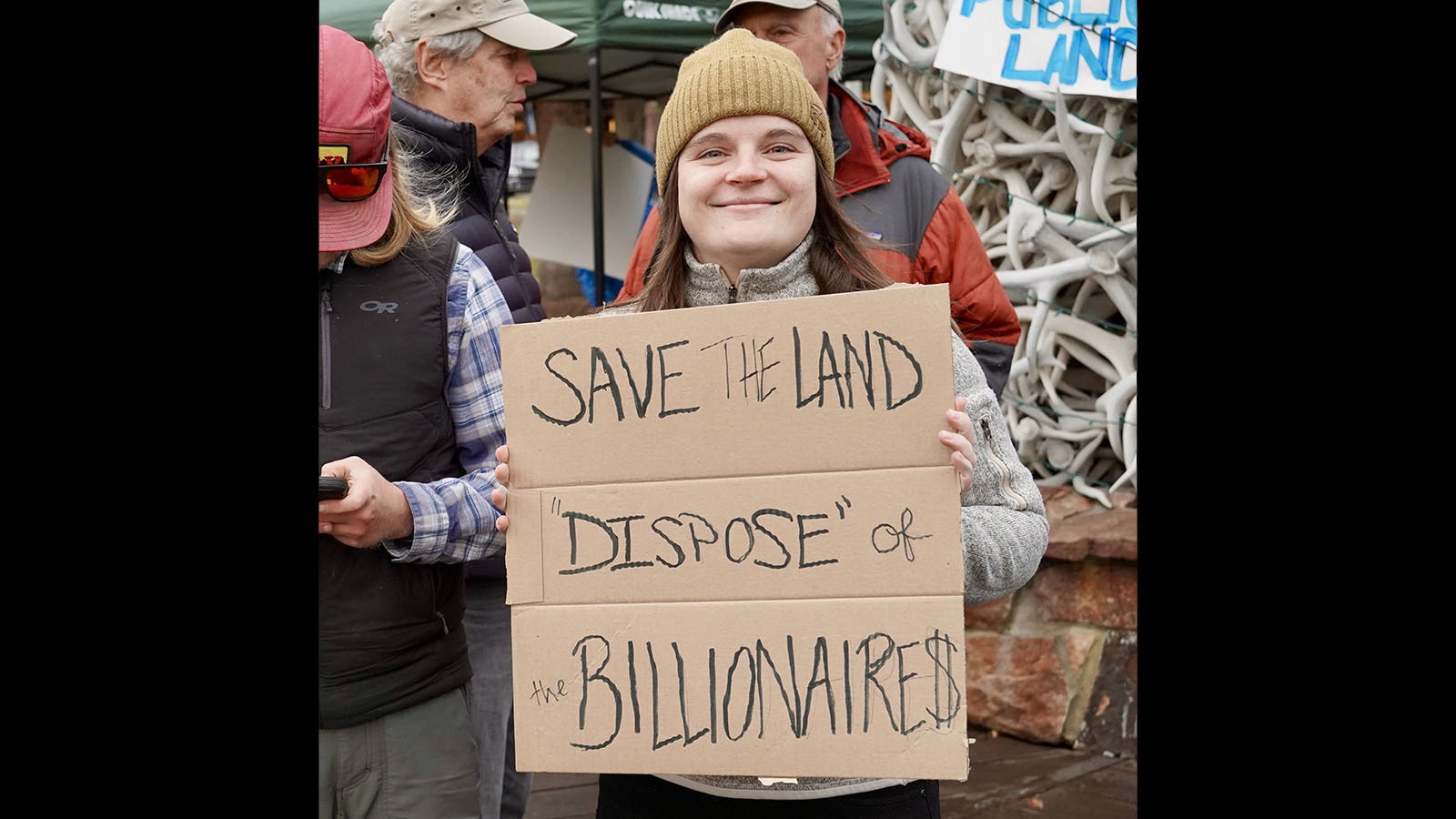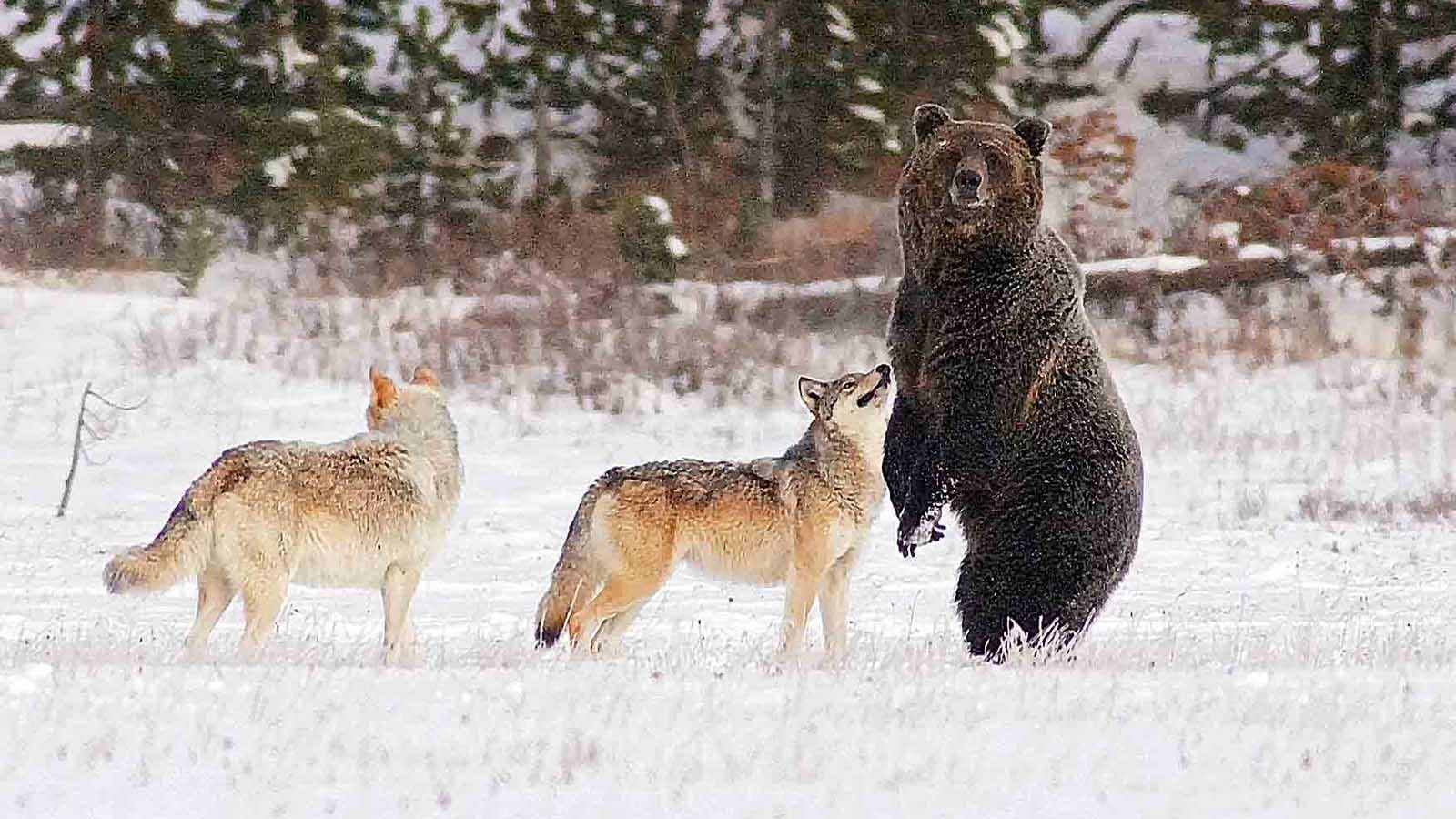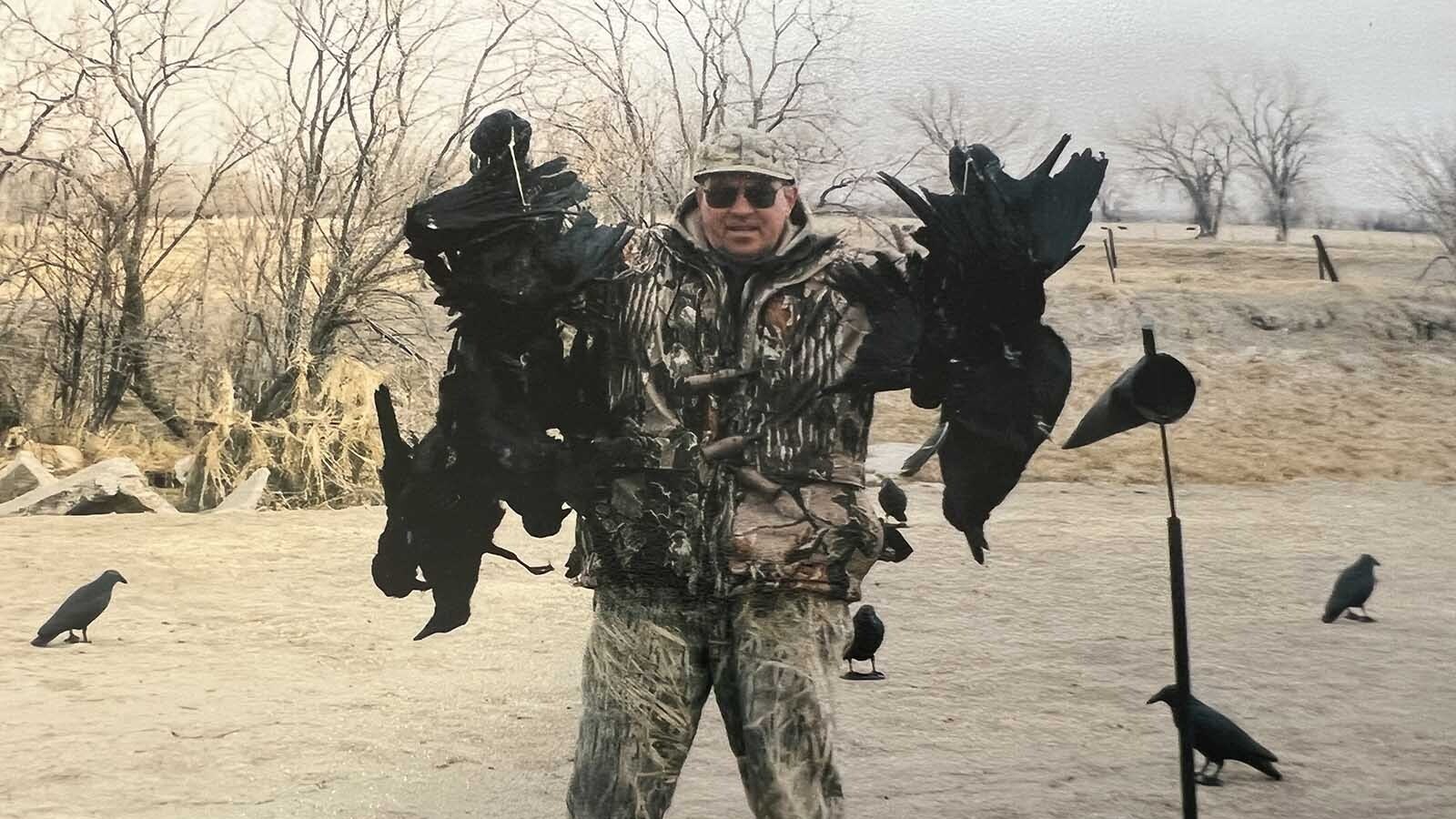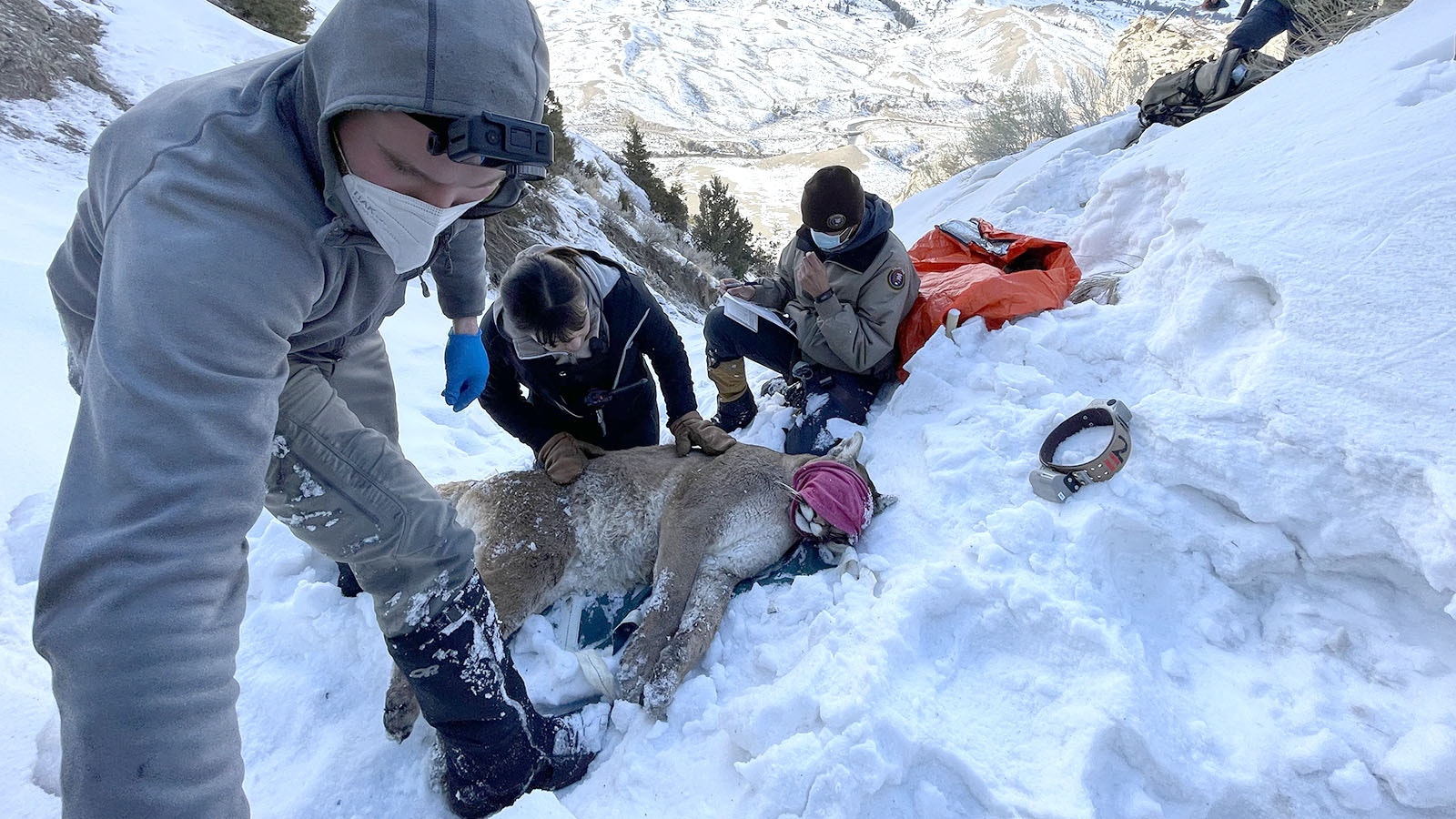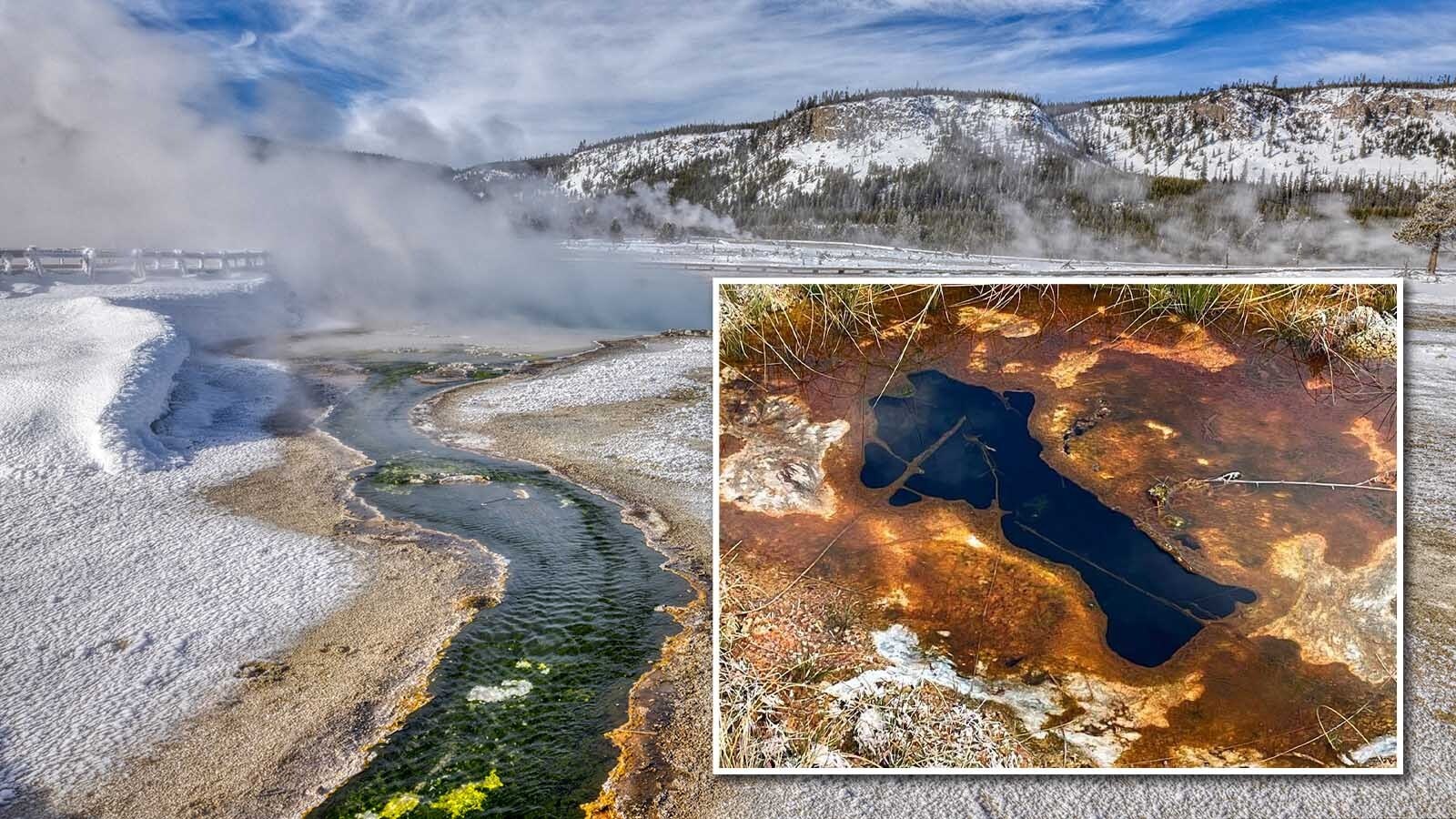JACKSON — A proposed land sale in Teton County has drawn an impassioned response from many in the area and throughout the state about what should be done with 640 undeveloped acres of pristine state-owned land outside Jackson known as the Kelly Parcel.
For Rob Wallace, former Assistant Secretary of the Interior for Fish, Wildlife and Parks, the fate of this parcel represents an important crossroads into Wyoming’s future.
“It’s a test about who we are as a state,” he said. “Can the citizens of Wyoming come up with a strategy that is both faithful to the Constitution, and also puts the state in a position where it is dedicated to conservation?”
The Kelly Parcel is a piece of state school trust land bordered on three sides by Grand Teton National Park, Bridger-Teton National Forest to its east, and a small section abutting against the National Elk Refuge.
On Dec. 7, the State Board of Land Commissioners will consider a proposal to auction the land off. That has many people concerned the land could be sold to a private buyer who might use the property for luxury home development.

Backstory
Most of the negotiations on the Kelly Parcel have spanned around two decades, but in some ways the issue dates back to Wyoming’s statehood, when the state was granted four parcels of trust land locked inside what later would become Grand Teton National Park.
The Wyoming Constitution directs the Board of Land Commissioners to generate the most possible income from all the state’s trust to support public schools. Because this parcel is located within a national park, the Wyoming Office of State Lands and Investments (OSLI) has determined it cannot realize the full economic potential for the parcel, which has led to discussions about its sale.
In 2003, the late former Wyoming Sen. Craig Thomas passed legislation authorizing federal purchase of state trust lands. This legislation piggybacked on OSLI-led efforts to exchange the land that had already been underway since the late 1990s.
But it was not until 2010 that the federal government agreed to buy the four parcels to expand Grand Teton. This agreement with the Board of Land Commissioners was specifically predicated on the Wyoming Legislature authorizing the sale, which happened in 2011.
By 2016, the federal government had bought three of the four parcels with the Kelly Parcel now the only one remaining.
On Dec. 31, 2016, the conveyance agreement between Wyoming and the U.S. government expired.
Two legislative attempts to extend the agreement failed, and a 2021 bill that would have established a new agreement also died, mostly because the sale price was amended to a minimum of $3.2 billion by state Rep. Steve Harshman, R-Casper.
This again left the future of the Kelly Parcel in doubt without an option for direct sale to the federal government.
Completing the process of appraising and performing a detailed analysis on the land has finally led the Kelly Parcel to where it stands today, on the brink of being sold in a public auction or traded for other public land.
In 2021, OSLI Director Jenifer Scoggin officially placed the land on its disposal list. On Oct. 2, OSLI began the process to sell the land.
What’s It Worth?
In early October, OSLI nominated the Kelly Parcel on behalf of the Board of Land Commissioners for sale through a public auction.
One thing that nearly everyone can agree on, said Rep. Liz Storer, D-Jackson, is the high value of the property, with prominent views of the Grand Tetons from its sagebrush and aspen tree laden-hills.
The land was appraised last year at about $62.4 million, a valuation that the state and federal government accept, Wallace said. But others say that’s too low, and Federal law stipulates that the government can buy the land for no more than what it is appraised at.
The six real estate brokers interviewed by Jackson-based Granite Creek Valuation, which completed the appraisal for the Interior Department, said there will be no shortage of prospective private buyers if the parcel goes out to bid.
Sky’s The Limit At Auction
Dave Sollitt, executive director of the Jackson Hole Conservation Alliance, said there is an inherent loss of control if the land goes to auction.
“Suddenly, a property that starts out at $62 million goes up pretty fast pretty quickly,” Sollitt said. “There’s an inherent risk in any sort of auction that goes through.”
Jason Crowder, deputy director for the State Lands Office, said Grand Teton has expressed a legitimate interest in buying the land through an auction, which is the most desired outcome.
“It’s a very high priority for them in the budgeting process,” Crowder said.
The land commissioners could potentially put stipulations on the sale, including that the property does not need to be sold to the highest bidder and reserving approval for the purchase until after the auction. But this also could lead to further litigation from aspiring private buyers who believe the state has unconstitutionally influenced the process.
“That involves a certain amount of risk in making that path work,” Storer said.
It Gets Political
But a direct sale to the federal government at this point would require approval of the Wyoming Legislature.
For the highly condensed 2024 budget session next spring, which requires a ⅔ approval for the passage of any bill, this may be difficult, particularly because of Wyoming Freedom Caucus members who are generally opposed to growing the government in any way.
State Rep. John Bear, R-Gillette, chairman of the Freedom Caucus, said if the state land is sold, it will likely lead to a loss of recreation and a similar situation to the BLM’s controversial Resource Management Plan. He also said the state’s $62 million valuation of the land is “laughably low.”
“Bottom line, the state should keep it,” he said.
Storer said the Legislature should consider taking action to get a new appraisal of the land, something Harshman said he also supports. He said the Kelly Parcel may be the state’s most valuable trust land.
“I think almost everybody is for the protection of the park, but we don’t want to bargain this thing away,” Harshman said.
The parcel is now leased out for grazing and a few tourism-related outfits, bringing in roughly $2,800 a year income.
Although a luxury home development may not be palatable to many of Wyoming’s conservation-minded folks, the sale of the land to a private buyer could provide substantial income for Wyoming’s schools. The 2022 appraisal of the land determined that the most productive use of the land would be through the creation of a residential subdivision with 35-acre or greater sites that would include around 18 homes based on the overall size of the property.
Even at the $62.5 million appraised price, at a modest 5% rate of return, the proceeds of this sale would result in $3.1 million income per year, $31 million over 10 years, $62 million over 20 years and $93 million over 30 years for Wyoming’s schools.
Who Decides?
A public comment period on the potential sale and proposal for auction is open until Dec. 1 . The State Board of Land Commissioners, made up of the state’s top five elected officials, will meet Dec. 7 in Cheyenne to decide how to proceed.
One of these members, Secretary of State Chuck Gray told Cowboy State Daily he has been, and will continue to be, opposed to “the priceless state trust land known as the Kelly Parcel.”
Gray said the Board of Land Commissioners took no vote that led to the initiation of a public comment process and if it had, he would’ve voted against it and the consideration to sell the land being on the board’s Dec. 7 agenda.
“I have serious skepticism that the appraised valuation matches the true value of the parcel,” Gray said. “Moreover, I'm deeply troubled by the way this process has been handled with the sale suddenly being placed on the agenda for the December meeting with very little time for public input on such a permanent decision.”
Gray said past land boards have not had a good track record of receiving fair prices for state land sales, and he has no confidence the Kelly Parcel will produce a better result.
What About The Status Quo?
Gray said he supports continuing the status quo of having the state manage and lease the property.
The OSLI reports acknowledges that the parcel will gain more yearly appreciation.
Storer said the federal government has earmarked money for the land purchase, but that will expire at some point, making postponing action on the sale indefinitely a less-than-ideal option.
In conversations with Gov. Mark Gordon, Wallace said the governor has expressed a desire that strikes a balance between generating maximum revenue for the land and preserving conservation.
A spokesperson for Gordon did not respond to Cowboy State Daily’s request for comment about what he would like to see happen with the parcel and how the property arrived at this stage in the sale process.
Any further delays in the project could result in a different level of commitment under another presidential administration or state governor.
Harshman said he has no problem delaying the land sale until the state gets a fair price offer.
On Monday, the Jackson Hole Conservation Alliance led a rally in the Jackson Town Square, where about 50 people voiced concern about the future of the land. Sollitt described the campaign as an effort to “minimize the risk of a bad outcome.”
“It’s a piece of land that is iconic enough to want to sustain it for future generations,” he said.
The land serves as a valuable migration corridor for pronghorn antelope and as a home to mule deer, bison, bighorn sheep and sage grouse. It’s also used extensively for hunting.
“Home development would undoubtedly impact wildlife,” Storer said.
OSLI is hosting four public meetings around the state to gather comments on the Kelly parcel proposal. After Thursday’s meeting in Jackson, there will be meetings in Casper, Cody and Cheyenne throughout November.

Development Potential?
Some questions have arisen about how much potential the parcel actually has for home development, as an easement on the property prohibits most surface disturbances and wouldn’t allow for a new road accessing the property. But the National Park Service has given permission for another access point to be built on park lands.
Since there is no nearby home development on the parcel surrounded by federal land, connecting infrastructure to the homes could also be a significant financial burden on Teton County.
The Teton County Board of County Commissioners have written a letter to OSLI unanimously urging the Board of Land Commissioners to deny the proposed public auction of the Kelly Parcel.
Wallace hopes that money set aside in the Land and Water Conservation Fund could be used for Grand Teton to buy the land.
The Grand Teton National Park Foundation also could help. In 2016, Wallace said the foundation aggressively fundraised and split the $46 million cost for the acquisition of the Antelope Flats parcel.
If a bidding war exceeds $62 million, Wallace said the Foundation could potentially step in to help the federal government with the purchase.
“Something like that may be an alternative,” Wallace said.
Bear warned against this scenario, saying the federal government could gain control of more land because Wyoming Attorney General Bridget Hill doesn’t pursue enclave clause cases, such as the controversial Marton Ranch land transfer outside Casper. The U.S. Constitution’s enclave clause requires the federal government to obtain the consent of a state legislature to exercise exclusive jurisdiction over land acquired within the state.
There’s also the potential that a private buyer could acquire and keep the land solely for conservation purposes.
Wallace and Sollitt worry that if Wyoming takes the path of home development with the Kelly Parcel, it will scar the state’s reputation and set a dangerous precedent for taking similar actions in the future.
“I don’t know another example in the U.S. where a piece of a national park went into the hands of a private developer,” Wallace said.
An auction or direct sale would not happen until late January 2024 at the earliest, Crowder said.
Leo Wolfson can be reached at leo@cowboystatedaily.com.

